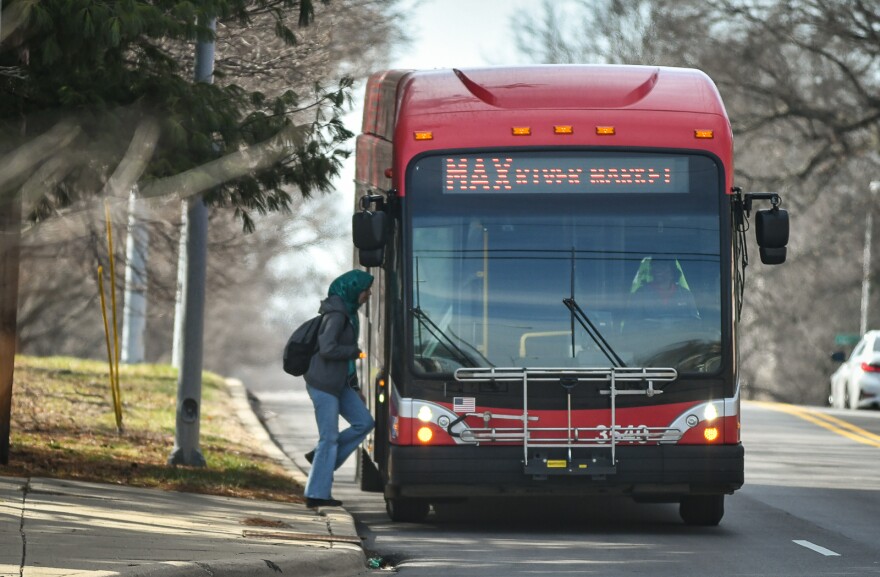Buses in Kansas City will remain free to ride for at least the next year, after the Kansas City Council voted Thursday to renew its annual contract with the Kansas City Area Transportation Authority.
The council unanimously approved $70.9 million in funding for the KCATA to continue providing public transit services, with explicit language extending the zero fare program — something the agency has been considering ending due to budget shortfalls.
However, the legislation also includes language directing City Manager Brian Platt to examine the costs and benefits of zero fare compared to an alternative called “functional free fare.”
What that looks like in practice is still unclear to city officials.
“We really don't know what functionally free fare is right now,” said 1st District-at-Large Council member Kevin O’Neill. “And this will help us understand what that is so that when we are presented with it, we'll be able to make a decision.”
The switch could possibly mean that most riders pay for bus tickets again, while some people still ride for free if they meet certain, still-undetermined criteria.
6th District Council member Johnathan Duncan said that lawmakers need more information on how it will affect residents and ridership.
“It will be a further debate moving forward,” Duncan said. “We are not implementing functional free fare today. You're simply asking for a cost-benefit analysis, what functional free fare is.”
Platt has 60 days to conduct the study.
Climate action group Sunrise Movement KC has been advocating to make free bus fares permanent. “The people made it clear that we back zero fare and we forced them to listen!” the group posted on X following Thursday’s vote.
“One thing is certain, zero fare as we know it is here to stay for the duration of this service agreement,” the group said in a follow-up post.
Kansas City began offering free buses in 2020, the first major U.S. city to do so. City Council originally agreed to subsidize the program through $4.8 million in funding taken from the city’s ½-cent public transit sales tax.
KCATA is now facing a financial cliff, with its $26 million in COVID-19 federal relief funds running out next year. The agency has yet to find money to make up that deficit, and if they can’t, officials have said it will lead to cuts in service.
The looming deadline has also pushed the regional transit agency to weigh the possibility of reinstating bus fares.
In recent months, KCATA conducted its own study that found that reviving fares at the 2019 levels — $1.50 per ride — would raise between $5.8 million and $7.1 million in annual revenue.
That same study also found that charging bus fare would decrease ridership between 17% and 33% from where it was before the pandemic. It would also likely cause disproportionate stress to low-income riders.
The total cost of KCATA’s service for Kansas City — which includes buses, paratransit and the Uber-like service Iris — is priced at $113 million.
Kansas City Council’s $70.9 million contribution is funded by a tax that voters renewed last November, in addition to the ½-cent public transit sales tax.
Additional funding will come from the state of Missouri and remaining pandemic relief money. The KCATA also proposed taking about $20.8 million from the city’s 3/8ths-cent sales tax reserve.






